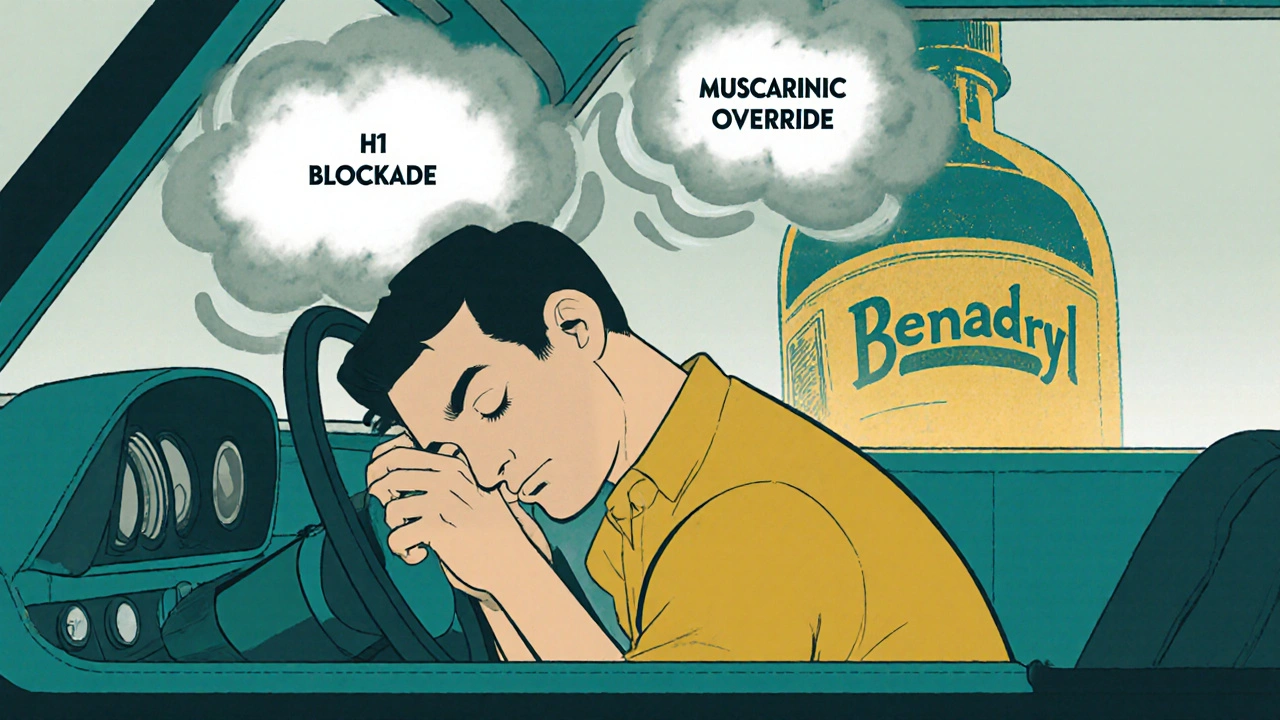Diphenhydramine: What It Is, How It Works, and What Else Works Like It
When you reach for a sleep aid or grab an allergy pill off the shelf, you might be holding diphenhydramine, a first-generation antihistamine that blocks histamine to reduce allergy symptoms and causes drowsiness as a side effect. Also known as Benadryl, it’s one of the most widely used drugs in this class — cheap, easy to find, and fast-acting. But it’s not just for sneezing and itchy skin. Many people use it to fall asleep, even though it wasn’t designed for that. And while it works, it’s not always the best choice long-term.
Diphenhydramine doesn’t just affect your nose and skin. It crosses into your brain and messes with acetylcholine, a chemical that helps with memory, focus, and muscle control. That’s why you feel sleepy — and why older adults can get confused, dizzy, or even have trouble urinating. It’s also why doctors warn against using it for sleep more than a few nights in a row. There are better options now, like cetirizine, a second-generation antihistamine that doesn’t cause drowsiness for allergies, or melatonin, a natural hormone that helps regulate sleep without the brain fog for bedtime. Even doxylamine, another sedating antihistamine often found in sleep aids, works similarly but lasts longer. So if you’re using diphenhydramine regularly, you might be trading short-term relief for long-term side effects.
What you’ll find below is a collection of real comparisons — not just theory. You’ll see how diphenhydramine stacks up against other antihistamines like Xyzal and Zyrtec, how it differs from sleep meds that don’t mess with your brain chemistry, and why some people switch away from it entirely. Whether you’re using it for allergies, colds, or sleep, there’s a good chance another option might work better — and safer — for your body. Let’s look at what’s out there.

First-Generation Antihistamines: Why Severe Drowsiness and Anticholinergic Effects Matter
- Oct, 27 2025
- Daniel Remedios
- 5 Comments
First-generation antihistamines like Benadryl cause severe drowsiness and long-lasting cognitive impairment. They're still widely used, but their anticholinergic effects raise dementia risk - especially in older adults. Safer alternatives exist.
